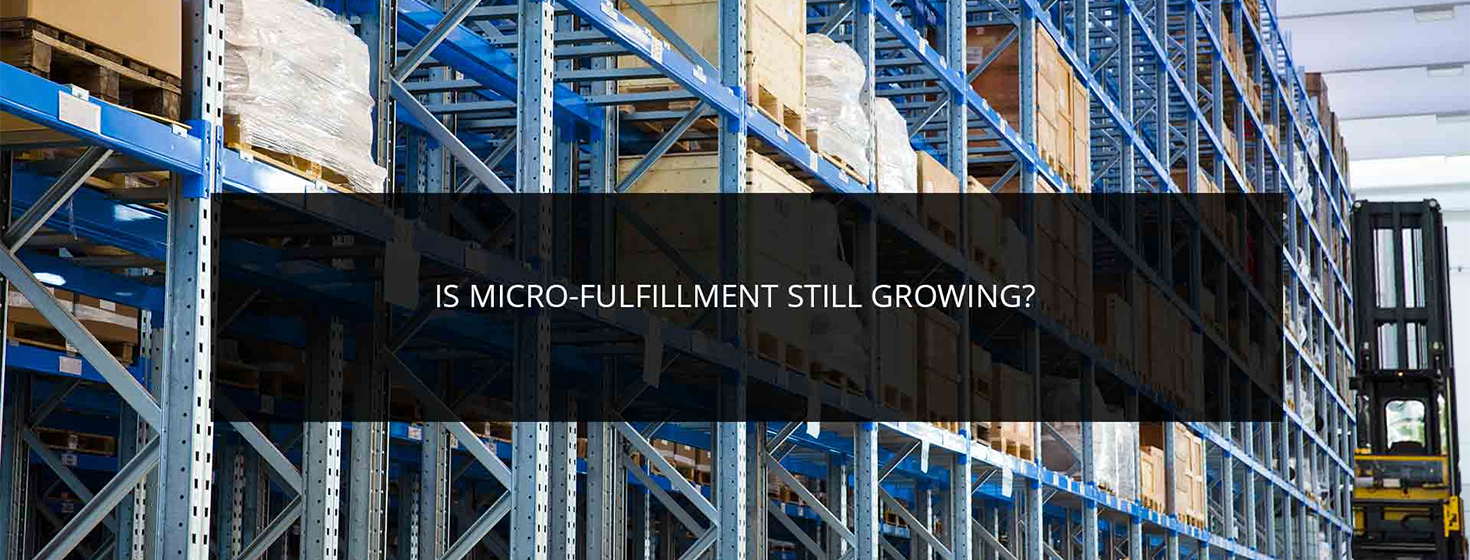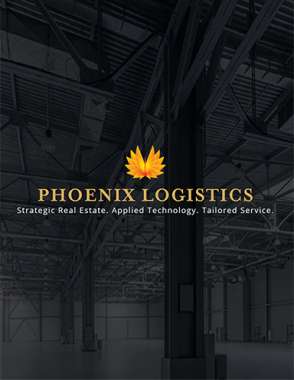Is Micro-Fulfillment Still Growing?

Partnering with a third-party logistics provider can help you manage increased fulfillment network complexity and mitigate any other risks associated with micro-fulfillment while still allowing you to reap all the benefits.
Micro-Fulfillment
Retailers have implemented numerous strategies to keep up with the steady uptick in e-commerce sales the sector has experienced since the onset of the pandemic.
While the most notable approach has been a dogged pursuit of traditional warehouses in primary consumer markets, real estate stakeholders have also become more creative.
From vertical warehouses to store fulfillment, retailers have stepped outside traditional fulfillment models to place inventory closer to online shoppers and meet demands for same-day, next-day, and two-day shipping.
Micro-fulfillment has gained significant traction since the e-commerce boom began. A micro-fulfillment center places the most popular SKUs in a small fulfillment center - usually less than 10,000 square feet - located centrally within a population center.
Micro-fulfillment centers have popped up in various places during the pandemic, such as disused retail or office spaces. Additionally, retailers or logistics providers can bring these facilities online within weeks, allowing them to quickly alleviate stress on fulfillment networks.
Is Micro-Fulfillment Just A Trend?
Since the expansion of micro-fulfillment happened in response to unexpected growth during the COVID-19 pandemic, some retail stakeholders have wondered about the permanence of the fulfillment model. Yet, even as the U.S. moves away from restrictive COVID-19 safety measures, the sector still managed 14.2% growth in 2021. In response, micro-fulfillment doesn’t seem to be going anywhere.
If industrial real estate were widely available in key markets, perhaps that would put a damper on the popularity of micro-fulfillment. But warehouse vacancy remains at record lows, while industrial real estate demand remains at all-time highs. As a result, even conservative estimates place any sort of balance of supply and demand in warehousing about two years out. This factor should give micro-fulfillment plenty of time to normalize itself in fulfillment networks.
Research and Markets estimate that micro-fulfillment center installations will grow more than 20 times by 2030, with more than 80% of those installations deployed in North America. This data suggests that micro-fulfillment will become a staple of e-commerce fulfillment practices within the next few years.
Should My Business Use Micro-Fulfillment?
Micro-fulfillment centers may provide a convenient way to quickly get top-selling goods to consumers, but that doesn’t make them right for every e-tailer. To determine if micro-fulfillment is right for your online sales, explore the advantages and disadvantages of the model.
Some of the advantages of micro-fulfillment centers include:
- Faster shipping. Locating inventory closer to customers makes meeting demand for same-day or next-day shipping easier.
- Lower transportation costs. Parcel shipping costs remain lower with the origination point and destination in the same city.
- Lower carbon footprint. Shipping thousands of parcels individually into a metropolitan area generates excess greenhouse gas emissions, whereas local intercity shipments generate less transportation-related pollution.
- Scalability. Opening new micro-fulfillment centers can happen quickly, allowing retailers to scale up quickly to match demand during peak sales periods.
Of course, micro-fulfillment is not without its drawbacks. Some of these include:
- Increased fulfillment complexity. Adding facilities to your network will have ramifications for your technology investment strategies and inventory management capabilities.
- Frequent replenishment. Maintaining enough SKUs in stock to keep pace with the same-day and next-day orders fulfilled by your micro-fulfillment facility can put additional strain on LTL and truckload shipment capacity.
- Unpredictability. Micro-fulfillment centers require upfront spending on technology and machinery, but the facility may only remain viable for a few years as consumer trends and populations shift.
Partnering with a third-party logistics (3PL) provider can help you manage increased fulfillment network complexity and mitigate any other risks associated with micro-fulfillment while still allowing you to reap all the benefits.
About Phoenix Logistics
Strategic Real Estate. Applied Technology. Tailored Service. Creativity. Flexibility. These fundamentals reflect everything we do at Phoenix Logistics. We provide specialized support in locating and attaining the correct logistics solutions for every client we serve. Most logistic competitors work to win 3PL contracts, and then attempt to secure the real estate to support it. As an affiliate of giant industrial real estate firm Phoenix Investors, founded by Frank P. Crivello, we can quickly secure real estate solutions across its portfolio or leverage its market and financial strength to quickly source and acquire real estate to meet our client’s needs.
Article Topics
Phoenix Logistics News & Resources
4 Best Practices for Online Order Fulfillment In 2023 Is Industrial Real Estate Recession-Proof? 9 Tips for Offsetting Rising Parcel Rates Tips for Retaining Your Peak Season Temp Labor The Great Decoupling and What It Means for Industrial Real Estate How Does the Inflation Reduction Act Impact Industrial Real Estate? Not in My Backyard: Warehouse Edition More Phoenix LogisticsLatest in Warehouse|DC
Talking Supply Chain: Understanding the FTC’s ban on noncompetes North Carolina Welcomes Amazon’s Newest Mega-Warehouse SAP Unveils New AI-Driven Supply Chain Innovations U.S. Manufacturing is Growing but Employment Not Keeping Pace Maximize Warehouse Space with Mezzanine Automation: Expert Tips Most Companies Unprepared For Supply Chain Emergency Microsoft Unveils New AI Innovations For Warehouses More Warehouse|DC













